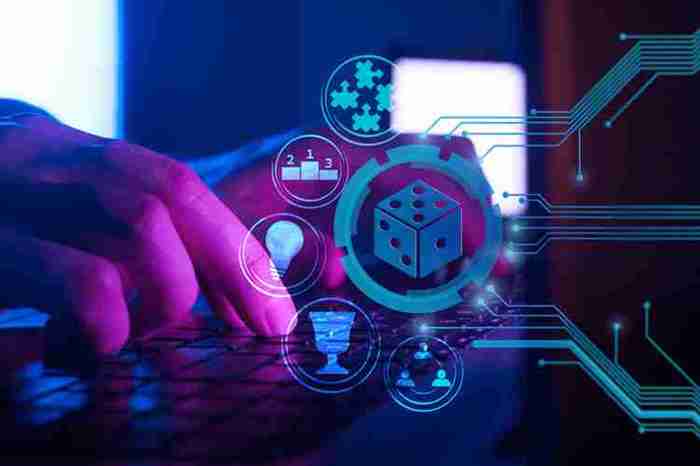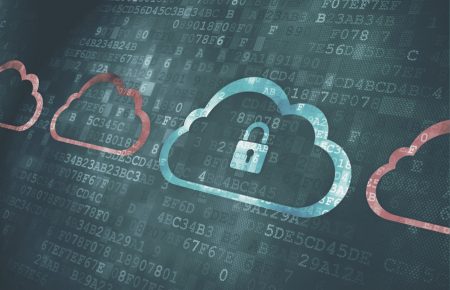The most regularly found rules are respect for autonomy (in terms of consent) and privacy, which are mostly discussed within the context of big-data and machine-learning, raising consciousness of the want to inform users of how their data is being collected, processed and guarded. Another frequently mentioned concern relates to knowledge governance, defined as the set of rules that should apply to all to regulate data-led activities and to place individuals before data, which is known as utilizing information to solve social issues and to enhance the quality of life. In the second stage of our evaluation, we reviewed 12 data ethics frameworks from educational, private and civil society sectors.

This involves not only complying with privacy laws but also going past authorized necessities to ensure that information assortment and processing are done with real respect for individuals’ autonomy and preferences. Real-world penalties of unethical knowledge collection embody vital fines, authorized battles, and reputational harm. For instance, companies like Facebook and Google have faced billions in fines for violating information protection legal guidelines, showcasing the severe financial and brand image repercussions of not adhering to moral data assortment standards. Ensuring that personal knowledge is collected and used in a manner that respects individuals’ privacy rights is prime. This entails adhering to privateness laws and rules such as the General Data Protection Regulation (GDPR) in Europe, obtaining consent from individuals whose data is being collected (when applicable), and implementing measures to protect personal info from unauthorized entry or breaches. These three primary rules kind the foundation of ethical data practices, guiding how information must be responsibly and respectfully managed.
What Is Ethical Consideration
Discover how main corporations are embracing transparency as a aggressive advantage and constructing ethical information cultures. Interest in data ethics is growing quickly and we can see a powerful diversification of themes and moral approaches. Scandals from industry and politics have triggered sturdy analysis interest in the field, enriching the discussion with new case studies and figuring out new forms of threats to people, communities and democracy. This analysis area also exhibits a deep interplay between academic scholarship and activism, with academics turning into activists, collaborations between activists and academics, and activists effectively utilizing tutorial scholarship to back their arguments. As a last step, to develop the ethical framework we collected from all three sources action-guiding moral principles.
- This analysis space also reveals a deep interplay between educational scholarship and activism, with teachers becoming activists, collaborations between activists and lecturers, and activists successfully using tutorial scholarship to back their arguments.
- Implementing this framework won’t solely create a robust foundation of trust with these from whom information is collected however may also ensure compliance with many emerging data safety laws worldwide.
- Having developed an awareness to safeguard information governance, guaranteeing moral behavior when utilizing data and protecting data privacy is an extremely essential part of utilizing information for policymaking.
- Because of such complexity, knowledge ethics should be developed from the beginning as a macroethics, that’s, as an general framework that avoids narrow, ad hoc approaches and addresses the ethical impact and implications of knowledge science and its purposes within a consistent, holistic and inclusive framework.
- Data ethics encompasses the ethical obligations of gathering, defending, and utilizing personally identifiable information and the method it affects people.
The 5Cs of knowledge ethics are a framework that helps information ethical issues and decision-making in phrases of dealing with and using information. These five rules present a structured strategy to guarantee that information is used in a responsible and moral method. Data ethics is the department of ethics that addresses the era, assortment, sharing, and use of knowledge. It considers how data practices respect values like privateness, equity, and transparency, in addition to the stability between particular person rights and societal benefits. The field of data ethics explores these questions and offers 5 guiding rules for enterprise professionals who deal with information. Together, these 5 Ps function a comprehensive guide for organizations looking for to navigate the ethical complexities of data administration.
What Are The 5 C’s Of Data Ethics?
In addition, particular person states, regions, and provinces are additionally creating extra expansive regulations around Data Ethics (e.g., the California Consumer Privacy Act). Closely linked to surveillance capitalism, AI has been used to target, influence and manipulate voters through social media, appearing to further polarise political beliefs and gasoline anger and paranoia. Personal knowledge and algorithmic social media vectors ship targeted propaganda messages which for many, are the main supply of ‘news’ in regards to the political sphere. Consequently, radicalisation and conspiracy-theorising have turn into widely normalised, threatening democratic processes, indicating a need for better regulatory frameworks (Badawy et al., 2019; Bolsover & Howard, 2019; Crain & Nadler, 2019; Hood & Margetts, 2007; Véliz, 2020; Woolley & Howard, 2016). Women, gendered and sexual minorities could be adversely affected by algorithmic decision-making in every facet of their lives, together with access to well being, providers and the labour market, for example, in clinical selections, or psychometric checks.
The principle of beneficence involves striving to contribute positively to society through data extraction, making certain that the benefits outweigh any potential dangers or harms. Carefully contemplating the potential consequences of information extraction and utilization to avoid causing harm to individuals or groups. This consists of contemplating the potential for data for use in discriminatory methods or ways that might negatively influence individuals’ employment, personal lives, or privateness. They make use of state-of-the-art encryption and safety protocols to safeguard the data they deal with against unauthorized entry and breaches. Regular safety audits and compliance checks make certain that their systems and processes remain impervious to evolving cyber threats.
By adhering to these rules, organizations can build belief with their stakeholders, shield particular person rights, and contribute to a extra responsible and ethical data ecosystem. Attitudes towards data sharing could also be based in a perceived loss of control over knowledge and a concern of the exploitation of private knowledge.[9] However, it is attainable to extract the worth of information without compromising privacy. While utilizing more knowledge in policymaking leads to better and more informed decision-making (if you aren’t yet satisfied, take a moment to read “Why it Matters”), data growth additionally comes with new challenges. As extra information flows in from varied (new) sources, it turns into tougher to take care of control over the information, protect the rights of information subjects and meet demands of data finish users.
It challenges individuals and organizations to contemplate the broader implications of their data practices on society and to try for outcomes that protect individuals’ privacy and dignity, guarantee fairness and fairness, and contribute positively to societal progress. The goal of knowledge ethics is to foster trust among users, shoppers, and stakeholders by demonstrating a commitment to ethical rules in each interaction with knowledge. The principles of beneficence (doing good) and non-maleficence (avoiding harm) guide moral data extraction to ensure that the benefits of information collection and analysis outweigh any potential dangers or harms. This involves fastidiously considering the impression of knowledge practices on individuals and society and striving to contribute positively via responsible knowledge use. PromptCloud, a frontrunner within the knowledge extraction and net scraping trade, acknowledges the critical significance of ethical data collection.
In essence, data ethics serves as a compass in the quickly evolving panorama of knowledge collection and evaluation, guiding practices towards extra respectful, responsible, and helpful use of information. As knowledge continues to play a pivotal position in decision-making across sectors, adhering to moral standards becomes not only a authorized necessity, but a moral crucial. By prioritizing ethical data practices, organizations and individuals can contribute to a extra equitable and accountable data-driven future.
Sensitive knowledge is a special category of personal information, revealing delicate private information (ethnic origin, political opinions, religious beliefs, genetic or health-related data). The ethical responsibility to make sure knowledge accuracy is essential, as selections made based mostly on incorrect or outdated info can have adverse consequences for individuals. Balancing the advantages of information extraction with the rights and interests of data topics and society at large.
Report – Data Ethics in Education and the Social Sector: What Does It Mean and Why Does it Matter? – Center for Democracy and Technology
Report – Data Ethics in Education and the Social Sector: What Does It Mean and Why Does it Matter?.
Posted: Mon, 22 Feb 2021 08:00:00 GMT [source]
Although organizations do not have the same jurisdiction as a government, various groups are coming together to supply sets of guidelines. For instance, Bloomberg, BrightHive, and Data for Democracy are growing a code of Data Ethics known as Community Principles on Ethical Data Sharing (CPEDS) to codify Data Ethics for Data Scientists. Before leaving the reader to the articles, we specific our gratitude to the authors and the reviewers for his or her contributions, in addition to to the Alan Turing Institute for funding the landscaping workshop as a half of its analysis strategy what is data ethics. The workshop and this theme issue would not have been possible without the strong help and continuous encouragement of many colleagues, however in particular of Prof. Helen Margetts, Director of the Oxford Internet Institute, and of Prof. Andrew Blake, Director of the Alan Turing Institute. We are additionally grateful to Bailey Fallon, the journal’s Commissioning Editor, and to the editorial office of Philosophical Transactions A for their nice help during the course of resulting in the publication of this theme issue.
When needed, acquiring express consent from individuals before amassing their data, particularly in circumstances where the data collection is not obvious to the person (e.g., via net scraping), is a crucial moral follow. Hiding information or deceptive in regards to the firm’s ways or objectives is deceit, and it is each illegal and unethical to data subjects. Every business engaging in data tasks should examine the ethics of knowledge gathering and how it’s later processed. Decision scientists, market analysis specialists, or decision-makers in a enterprise should think about ethical issues even in the lack of a regulatory framework for his or her information collection tactic. To build and keep trust, businesses have to be clear about their knowledge practices and be held accountable for any missteps.
A Complete Guide To Moral Information Collection And Its Significance
We think about that ethics, and extra specifically, knowledge ethics in the context of instructing analysis methods, should be actionable. Thus, to develop crucial data literacies and analysis skills in HE, ethics should be a transversal factor quite than a formality or ‘tick-box’ train, hence embedding the idea of ethics as a technique, guiding research from design through to communication and each stage in between (Markham, 2006; Markham et al., 2018). Certain technical, social and political situations could vastly increase the possible makes use of and influence of data.

Data ethics is a branch of ethics that evaluates knowledge practices—collecting, generating, analyzing and disseminating data, each structured and unstructured—that have the potential to adversely impression folks and society. It consists of addressing and recommending ideas of proper and mistaken conduct, with transparency in and defensibility of actions and decisions pushed by automated/artificial intelligence (AI) in relation to data generally and personal data in particular. Considering the broader societal implications of knowledge extraction, together with how it affects public trust, social norms, and democratic processes, is an important facet of moral apply. This entails evaluating the long-term consequences of information practices and making certain they align with societal values and contribute to the public good.
Boardroom Ethics In The Age Of Synthetic Intelligence: Navigating Ethical Dilemmas
If not, head back to one of the resources mentioned above and get began on leveling up your knowledge protection processes. Ethical knowledge practices can help organizations differentiate themselves as responsible stewards of information in an increasingly data-driven world. By using these strategies, you’ll have the ability to assist educate and raise consciousness about information ethics, fostering a culture of responsible knowledge use and ethical decision-making in varied sectors of society. We take a look at the most recent developments in knowledge safety and cybersecurity, offering insights into how companies can fortify their defenses against knowledge breaches and defend their clients’ trust. Data ethics also gets concerned in the information supply chain, ensuring responsible practices at every step—from aggregation to storage.
Due to the unfavorable penalties of those acts on science and ultimately society, instructing materials and moral frameworks repeatedly made references to scientific integrity, professional responsibility and abiding to skilled rules of conduct. Academic literature however already deals with issues of information fabrication, manipulation and falsification beneath rules of “promote fairness”, “no harm” and “address bias”. PromptCloud, as a leading supplier within the information extraction and net scraping business, has established a complete framework of practices and policies to make sure moral data collection. Their strategy is centered round respecting user privacy, ensuring sturdy data safety, and maintaining transparency and integrity in all their operations.
First, we searched for the term “ethics” in research methods curricula, initially retrieving over 600 data. Identified records have been reviewed to determine if a description of the course units and content was provided, on the first pass narrowing the sample to 340 data which provide some information. On additional investigation, only 250 of these offered adequate detail to extract related information about how (or if) information ethics is taught at undergraduate (118), master’s (81) and doctoral level (51). Second, we aimed to establish postgraduate-level data science programmes with prospectuses available to obtain or evaluation online. This yielded 170 programmes, of which eighty offered a detailed description of the modules, including the models taught, so we could identify how or if information ethics was embedded in curricula.
We therefore judge that our analysis can complement previously printed systematic reviews by diversifying the scope of ethical views. The opacity of algorithms creates black bins, and one of many key arguments towards the necessity to have regulatory frameworks is the issue of the “Racist Robots”, that for instance are leading to shopper lending discrimination, or stopping sure groups acquiring visas to go to or stay in countries. Moreover, they will hurt marginalised groups, for example, through racially profiling predictive policing which then leads to longer incarceration (Alaieri & Vellino, 2016; Bartlett et al, 2019; Brantingham, 2017; Chander, 2017; Hepworth & Church, 2018; Khalifa et al, 2014; Kuzey et al., 2019; Roth, 2010; UNESCO, 2019). Algorithmic determination making are likely to adversely have an result on those coming from lower-income households and neighbourhoods.
Information Governance
Data privateness is turning into an increasingly important subject as new knowledge sources, similar to cell phone data, have the potential to offer massive units of real-time personal info. Data governance refers to the rules and processes for the way knowledge is collected, accessed, controlled, used or shared in any given context. According to
Ethical data practices are essential to stop discrimination, bias, and other dangerous penalties that can arise from the unchecked use of knowledge. Many organizations are actually appointing Data Ethics Officers to supervise their information practices and ensure compliance with ethical requirements. Lastly, it was fascinating to watch that syllabi, moral frameworks and academic literature tended to focus on a smaller set of ideas (or even a single principle), or place emphasis on different principles in separate publications. Data literacy programmes ought to be supported by a spread of social values to address the variety in a pluralistic society. The early literature on value-sensitive design has recognized privacy, non-discrimination, autonomy, and security as extensively shared values concerning information applied sciences. Yet, on the same time Friedman et al. (2008) observe that they could battle in follow and must be balanced.
In order to look beyond the conceptualisation of ethics lined by existing frameworks and incorporate critical views, we reviewed a extensive range of academic literature on information ethics, including critical approaches to information and significant knowledge literacy. Understanding the ethical conundrums inherent in working with data is core to the problem of considering how knowledge collected for an initial objective might be put to different makes use of sooner or later, and how knowledge from completely different sources could additionally be mixed into new datasets that can remove anonymity or be used to foretell and affect behaviour (Hand, 2018). The ascendancy of techno-solutionism amid a fluid technological panorama makes the exact form of future knowledge threats difficult to discern; but expertise means that the already marginalised and weak carry probably the most dangers. Sustainable ethical principles to guide decision-making in data practices, in training and past, are urgently wanted.

Read more about https://www.globalcloudteam.com/ here.







